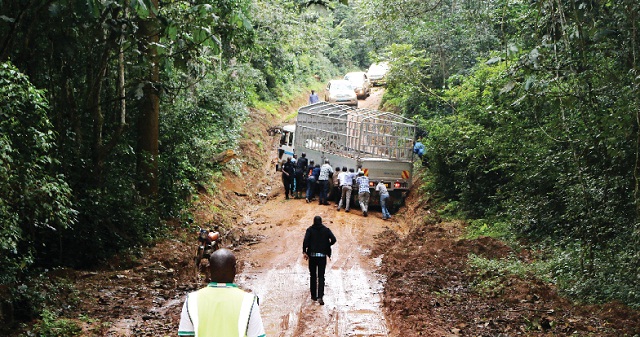
Could remedy be e-governance?
COMMENT | CISSY KAGABA | The Government of Uganda has since 2008 prioritised road construction and maintenance by committing a substantial part of the budget towards the same. Uganda spends over Shs3.3 trillion ($1b) annually on public infrastructure and roads still receive a lion’s share of the 2018/19 budget as per the Budget Framework Paper.
These efforts are commendable, as they have facilitated commerce given the fact that over 90% of the country’s cargo is moved using roads.
Infrastructure development is pivotal in promoting economic growth, and we would have no problem with government allocating chunks of monies to the sector, only if the sector was well insulated against corruption tendencies.
Unfortunately the sector has been shrouded in allegations of corruption and questionable standards of some constructed roads. Contract prices have in most cases been inflated through bribes and connivance.
Corruption in the sector prompted President Yoweri Museveni a few years back to set up a commission of inquiry that confirmed it.
The Commission of inquiry into misuse of funds at Uganda National Roads Authority (UNRA) revealed that an astronomical Shs4 trillion had been misappropriated over a period of seven years.
The sector has also been obscured in secrecy and lack of public access to road construction information. Limited information disclosure of project data and the technicality of sector have been partly attributed to low performance in the sector.
Access to Information is a right as envisaged under Article 41 of the 1995 Constitution and re-instated by the Access to Information Act 2005. Corruption thrives where information is not availed to the public. Governments that are liberal in sharing information with citizens are more likely to develop faster than those that withhold or give piecemeal information. Openness in infrastructure projects is not only important in empowering citizens to monitor and hold the relevant agencies accountable, but also builds public trust, especially right now, where public apathy is on the rise and citizen trust levels low as regards government’s commitment to fight corruption.
Players in the construction sector and government in general should adopt more efficient means of sharing information with the public as a means of reducing corruption related tendencies.
Online platforms can reduce mismanagement, inefficiency, corruption and improve value for money in government projects through real-time access to information on road construction projects.
Systems such as the Uganda System for Electronic Open Date Records (USER) initiated by Anti-Corruption Coalition Uganda in partnership with Kampala Capital City Authority can improve public confidence and trust in a sector that is prone to corruption tendencies.
Through such platforms citizens can be empowered with information to act as monitors and whistleblowers that can hold their leaders accountable.
Citizen participation in e-governance can empower the public to demand for accountability, bearing in mind that the infrastructure/road sector has not had strict citizen scrutiny to ensure appropriate spending, transparency and accountability.
We believe that e-governance can reduce mismanagement, inefficiency, corruption and improve value for money in government projects, because an empowered citizenry with basic information can go a long way to advocate for the change they want to see.
*****
Cissy Kagaba works with Anti-Corruption Coalition Uganda.
 The Independent Uganda: You get the Truth we Pay the Price
The Independent Uganda: You get the Truth we Pay the Price


